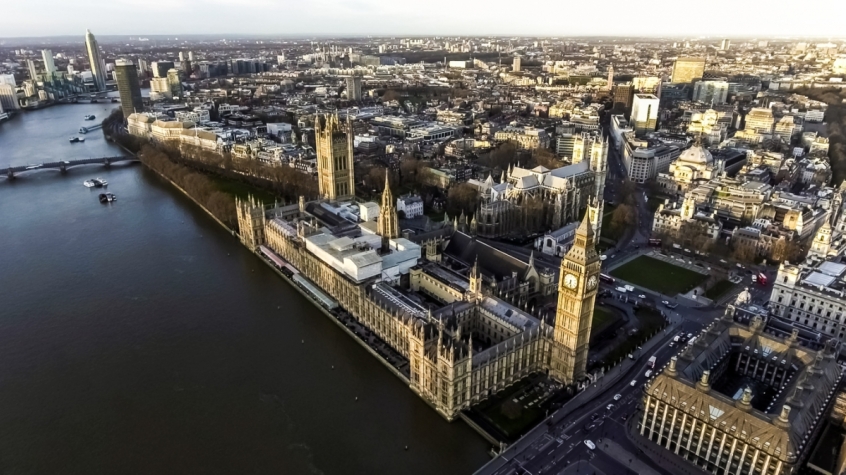
Governing is a great responsibility – the stewardship of a nation is a massive task.
A major criticism of the government's actions last week in announcing a financial plan that caused economic meltdown, was that the PM and Chancellor had been warned of the damaging effects of such actions, yet they had ignored the warnings and the advice, had sacked the senior civil servant in the Treasury and had refused to share their plans for analysis by the Office for Budget Responsibility.
Next, they failed to explain how they would pay for a huge increase in government borrowing, and so they lost the confidence of the financial markets, and the pound went into free fall to the extent that the Bank of England had to step in.
It seems that the government were seeking to conduct an experiment based on an ideological desire to overhaul established economic thinking, without consulting anyone, without listening to advice. It would also be fair to say that they did this without a mandate given that this approach was not in the last Conservative manifesto. The fact that they have now done a partial U-turn, over the 45p tax rate, shows quite how unpalatable this was, even to their own MPs.
But this was also an experiment with the potential to do real and huge harm to people's lives and already fragile finances. Rising interest rates and inflation are pushing up the cost of mortgages, food and other goods by far more than the government energy package will alleviate them.
I do try to be even-handed – not to criticise politicians and policies just because we disagree with them. Instead we seek to understand the rationale of different ways of thinking. But sometimes a situation arises that simply leaves us, well, gobsmacked!
There is nothing wrong in principle with pursuing a particular ideological way of doing things – all governments and individuals are motivated to act by their beliefs. But there is a difference between wise and reckless actions by those who wield power over others.
How do we look at this from a Christian point of view? We return often to Micah 6:8 in seeking God's wisdom: "And what does the Lord require of you? To act justly and to love mercy and to walk humbly with your God."
We have already established that this was not a humble act. But was it a just and merciful one? The principle of reducing taxes for the richest citizens to drive economic growth jars at a time when the poorest are having to decide whether to feed their children or to heat their homes.
Shocking research from Christians Against Poverty has found that just under half the population of the UK – an estimated 25.4 million people – are now struggling financially. Eight million people are estimated to be going without heating or electricity completely and 8.5 million are skipping meals.
Even more heartbreakingly, another piece of CAP research found that 36% of CAP clients – those who turn to them in desperation - said they had "considered or attempted suicide as a way out of debt".
It is generally accepted in today's society that the government is responsible for providing a safety net for the poorest and neediest. This is known as the welfare state. Politicians may favour more or less support through this system – we do not want people languishing on benefits or 'playing the system'; perhaps we feel that local communities should support those in their midst rather than government stepping in – yet there is no denying that recent events have seen a vast and real increase in need.
Last week the Archbishop of York Stephen Cottrell spoke at the church service at the Labour Conference, and he likened a good economy to a well-run household, a family, where everyone is catered for according to their need. It should be unthinkable that some at the dinner table are fed while others go hungry. Yet this is literally what is happening in many households at the moment. Parents go without to feed their children. Children go to school for food as much as for education.
Whatever we think of the role of government in the economy and the welfare state, as Christians we should agree that we have an imperative to love one another. Love in the Bible is not a sentimental slushy feeling. It is a gritty engagement with other people's lives. Jesus not only came to preach the salvation of souls, but he fed and healed the people he encountered. For his followers, this means we should also look after each other in practical ways.
The early Christians whose stories are told in the book of Acts ensured that they '[gave] to anyone who had need'. And, as part of the same process, 'the Lord added to their number daily those who were being saved' (Acts 2:45, 47)
Because we have faith in the one who saves, we must also show his love to others, through our politics, to tackle the poverty, hunger and injustice that are rife in our world. We need to be praying for great wisdom for our government to understand their stewardship responsibility and to put this into practice by acting justly, loving mercy and walking humbly through this crisis.
Tim Farron has been the Member of Parliament for Westmorland and Lonsdale since 2005, and served as the Leader of the Liberal Democrat Party from 2015 to 2017.Tim is also the host of Premier's 'A Mucky Business' podcast. His new book A Mucky Business: Why Christians should get involved in politics is published in November.













